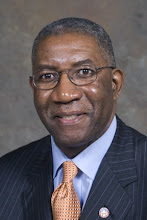Nevertheless, the sergeant arrested Gates for disorderly conduct because "Gates continued to yell at me, accusing me of racial bias and continued to tell me that I had not heard the last of him." Instead of leaving the area, the sergeant placed Gates in handcuffs and arrested him outside his own residence.
Reactions to the Gates arrest for disorderly conduct have varied. Some comments posted to Internet blogs have suggested that Gates brought the disorderly conduct charge on himself by being indignant and "uncooperative" with the police sergeant. Others have responded that the Gates incident again demonstrates how police officers treat black and brown people as criminal suspects, even when they know they are not.
The Cambridge Police Department dropped the charges against Gates on July 21. However, that action should not prevent us from asking some hard questions.
- If the police sergeant identified Gates as being who he said he was and where he had a right to be based on the Harvard University ID card, as the sergeant's report asserts, why didn't the sergeant merely leave?
- If Gates expressed indignation toward the sergeant and called him racist, why didn't the sergeant merely leave?
- If the sergeant saw that Gates was displeased by his presence, why didn't the sergeant merely leave?
- If Gates was on his property outside his house and was loudly accusing the sergeant of being racist, how was that conduct disorderly? Whose order was Gates disturbing? Who was complaining about Gates' tone or volume? Who, aside from the sergeant, took offense at Gates? Did the disorderly conduct arrest result because the sergeant was insulted? Is "disorderly conduct" merely police shorthand for "contempt of cop?"
- Why did the sergeant warn "Gates to clam down while I withdrew my department issued handcuffs from their carrying case,"--according to the sergeant's police report--when the sergeant knew that Gates was not a burglar, was upset with the officer, and was not engaging in any threatening conduct toward the officer or anyone else?
The police sergeant knew when he saw Gates' Harvard ID that Gates was no burglar. Gates had the freedom to believe the officer to be racist. Even if Gates was loud in accusing the sergeant of being racist, his behavior did not justify being arrested. The sergeant and his superiors on the Cambridge Police Department acted as if Gates had no right to criticize law enforcement. The decision to arrest and charge Gates with "disorderly conduct" charge appears to have been a power play by the sergeant and the Police Department against an angry black man who refused to behave with sufficient deference. When a white police sergeant can publicly arrest a black man in 2009 who loudly accuses the sergeant of behaving in a racist manner and when the sergeant's superiors permit the arrest to result in criminal charges being filed, it is clear that Barack Obama's election has not changed the reality of cultural incompetence within the law enforcement and criminal justice community.
Gates is a world-renown scholar whose experience captured international attention. However, his experience is endured by countless people of color. Fortunately, Gates was not shot and killed, beaten, or forced to spend a night in jail. Unfortunately, the same mindset that caused his arrest has resulted in many deaths, beatings, or jailings of people of color who are not prominent.
And unfortunately, after each such incident, the cultural incompetence within the law enforcement and criminal justice system does not change. Instead, state and local governments continue to certify culturally incompetent people to exercise physical, and sometimes lethal, force in ways that show they support culturally incompetent law enforcement.
We should not be surprised that Henry Louis Gates, Jr. was angry. What should surprise us is that the Cambridge Police Department will not train a police sergeant how to accept criticism from a law-abiding citizen without mis-using his authority and the tools of his office against the citizen. We should be surprised that more of us are not indignant about how Gates was treated.
We should not be surprised that people of color do not trust the police to protect them, serve them, or treat them fairly. After all, the Cambridge Police Department's behavior toward Gates shows that it would rather treat black people as criminal suspects than as law-abiding people who deserve respect when they express displeasure with unsatisfactory service. One suspects that the Cambridge Police Department's conduct is not exceptional within the law enforcement community. Cultural incompetence in law enforcement is alive, strong, armed, and licensed by state and local governments across the nation. That was true before Henry Louis Gates, Jr. was born. It has not changed. Apparently, state and local officials do not want it to change.
